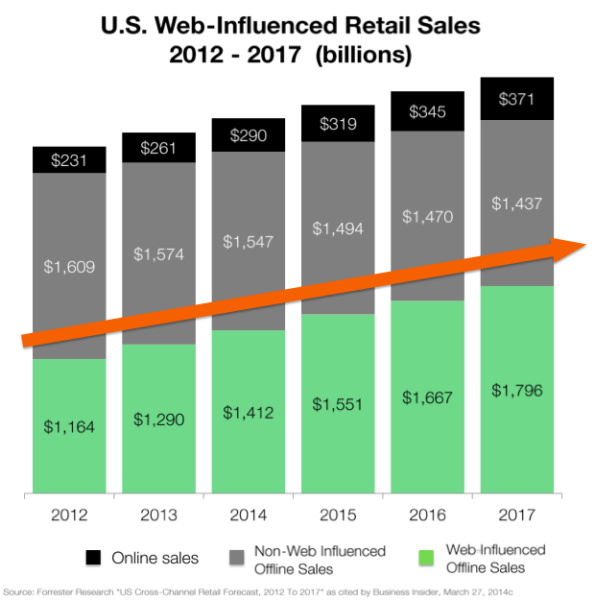When analog revenue is really digital revenue
Just a few years ago, "digital revenue" for most companies was the small slice of revenues that originated from the company website and shopping cart. For the Internet-centric companies it was typically the only revenue stream. And other organizations didn't have any at all.
Now the company website has become an important marketing tool or even "salesperson" – not only as a validator, but as a very meaningful component in the buyer's selection process. Research from Forrester paints a clear picture:

Lots of companies have "validator" websites, i.e. sites that serve as proof that the company exists and that they are serious – not unlike the impressive office used to do back in the dark ages. Typically, a prospect is referred to a vendor by someone, and the prospect immediately goes online to check if the website supports the referrer's claim. So a professional-looking site is a must. And a way to start.
But to an increasing number of buyers, the vendor website is the pivotal point in the vendor selection process. These buyers often know what they want, and they are trying to figure out where to get it.
Let's imagine someone wanting to buy a new dining room set. That shopper probably already has some stores in mind, and she might use search engines to find a few more. In the process, the shopper learns about selection and prices from each vendor's website and then makes up her mind about which store(s) to go to.
This shopper finishes off the process by buying her dining room set in a store after inspecting a physical sample – in a 100% analog (i.e. non-digital) process. But the fact that this shopper appeared in the store in question was the result of a "digital determination" that preceded the purchase.
So, for an increasing number of companies, even "analog revenue" is now really "digital revenue" – sales that wouldn't happen without the digital element.
What does that mean to your sales force? Your marketing organization? Your overall budget considerations?
